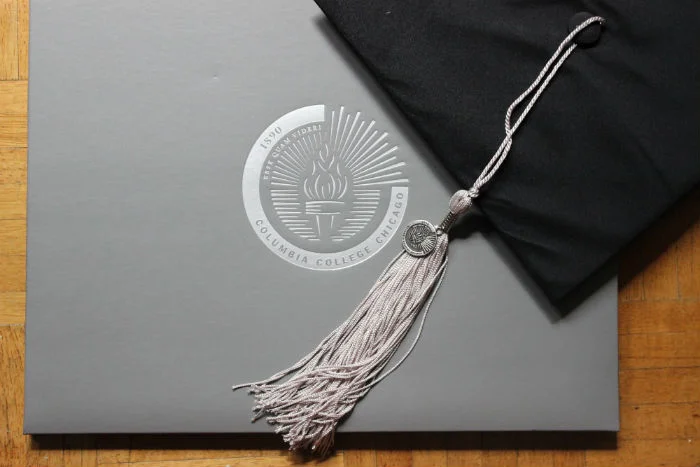Freelancing lessons from the Longform podcast
I have to confess something. A few weeks ago I finally discovered the Longform podcast. (I know I’m super late. I heard about the podcast through the Columbia Journalism Review). I’ve been happily binging ever since.
As an up-and-coming freelancer, I’ve found the podcast to be incredibly helpful and insightful. Each week, the podcast hosts, Aaron Lammer, Max Linsky, and Evan Ratliff, interview emerging and established fiction and nonfiction authors, journalists, and radio show hosts who specialize in in-depth storytelling.
I’m a big fan of the podcast, so I encourage you to go back and listen to the episodes to learn from among the top editors, full-time, and freelance feature and investigative reporters who cover everything from celebrities and sports to war and poverty. I’ve picked the following podcast episodes to point out some useful tips for freelancers ranging from navigating complex relationships with sources and editors to negotiating their rates and taking care of themselves in the midst of tackling tough stories.
Rachel Syme: Every month, magazines publish their latest celebrity profile, offering readers a glimpse into the lives of the rich and famous. In Longform episode No. 137, Rachel Syme, New York-based journalist and editor who has profiled rapper Azealia Banks, TLC and Broad City stars Abbi Jacobson Ilana Glazer, walks listeners through her process in creating those narratives. She discusses how tough it is to do celebrity profiles in an era when celebrities can further control their narrative through social media and publicists are increasingly restricting access to their high-profile clientele. She candidly discusses developing persistence, navigating complicated relationships with sources and the “staged-natural activities” that go into illustrating who celebrities really are.
“I think you have to fight for your own piece, and you have to decide where the rhythm is,” Syme said. “If you’re missing it, you can ask for it. They’re allowed to say no a thousand times. You can ask a thousand times.”
Listen to her Longform interview here or wherever you get your podcasts.
Susan Cagle: Journalist and illustrator Susan Cagle talks covering the tech scene in California, working on the Who Pays Writers project and her outspokenness about freelancing. Cagle’s willingness to open up about negotiating was very refreshing and helpful to me. More to the point, I think it helps to think about how one should set his or her rates. She also talks candidly about how her advocacy for journalists has both helped and possibly hampered her getting work. (We go over whether or not you should work for free here).
“I have to say that I have done work for free, and I’m not anti-doing-work-for-free,” Cagle explained. “The problem is when you’re asking someone to do work for free and you’re getting paid lots of money and everyone around you is getting paid lots of money and there’s going to be ads placed on that free thing that are going to earn you lots of money.”
Listen to her Longform interview here or wherever you get your podcasts.
Mac McClelland: Mac’s work has appeared in Mother Jones, The New York Times Magazine, Matter and other outlets. She has appeared on the podcast twice, and I recommend listening to both episodes. After reporting on international stories ranging from post-Charlie Hebdo policing in France to the post-earthquake reconstruction in Haiti, she has recently written a book about her experience with PTSD. I appreciate the her willingness to discuss her experience with post-traumatic stress disorder and the relationship between her illness and reporting. I loved that Mac seems to exemplify that you can live with a mental illness, take care of yourself and still kick-ass as a reporter. (Also, if you missed it, here’s my post on self-care).
“I would just suddenly start sobbing, which is not something I usually do. I felt like I needed to be drunk all the time, which is not something I usually do,” McClelland said. “I was terrified and confused and disoriented all the time. I was a completely different person, completely unrecognizable even to myself.”
Here’s the episode where Mac talks about her new book.
Natasha Vargas-Cooper: You might have come across Natasha’s work in GQ, Spin or Buzzfeed. Natasha’s work shies away from general pop culture writing and instead centers on intensive, complex narratives surrounding fringe characters. Not only did I find her personality cool, I also appreciated her honesty about how tough the writing process for longform reporting really is. Writing is often romanticized, but it is a deeply personal and challenging feat to turn a blank page into something that readers will understand and love. If you as a writer find the drafting process difficult, you are not alone.
“I naturally have always gravitated towards … marginal existences. I seek those stories out, and those stories by their nature are long, because these high stakes and these situations --- unless you’re in war--- don’t just pop up.”
You can find Natasha’s interview here.
Ann Friedman: Journalist, editor and co-founder of Tomorrow Ann Friedman has written for the Columbia Journalism Review, New York Magazine, The New Yorker, Elle, Los Angeles Times and many more outlets. In her Longform interview, Friedman outlines how working as an editor framed her approach to editors as a freelancer and why she cultivates relationships with peers and up-and-coming talent rather than “kissing up.” I’ve always felt that you should be courteous to everyone, because you won’t be sure where your next opportunity will come from. During the interview, Friedman explains why she thinks doing so is important in terms of career longevity.
“You should always be kissing down and sideways to the people who are going to be working alongside you and coming up behind you,” Friedman said. “I want there to be some journalist who remembers when I got on the phone with her in 2013 and helped her negotiate for her first salary and throws me a fucking bone.”




